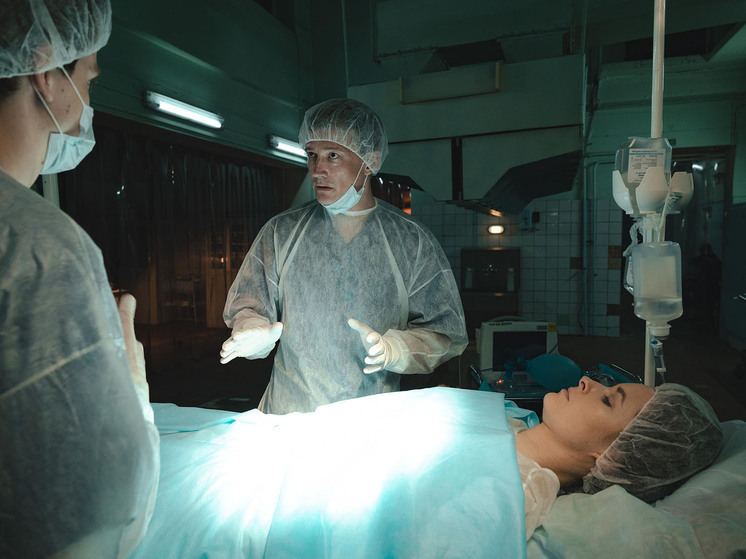From the sterile halls of emergency rooms to the complex personal lives of those who heal, medical dramas have long captivated audiences. But what happens when the genre itself needs a diagnosis?
The allure of medical dramas is almost universal. They offer a potent blend of life-and-death stakes, ethical dilemmas, scientific intrigue, and, of course, a healthy dose of human drama. For decades, these shows have held a firm place in television schedules worldwide, evolving from didactic procedural narratives to complex character studies. Recently, Russian television has provided a fascinating case study in this global trend, showcasing a diverse spectrum of approaches to the genre, from the gritty and experimental to the comforting and traditional.
- The Evolving Prescription: From Heroic Ideals to Human Realities
- Case Study 1: “The Surgeon” — An Ambitious Yet Uneven Operation
- Case Study 2: “Breathe” — The Unfiltered Pulse of Domestic Trauma
- Case Study 3: “Ask the Nurse” — The Comforting Balm of Classic Justice
- The Prognosis: A Genre in Robust Health
The Evolving Prescription: From Heroic Ideals to Human Realities
Historically, medical dramas often painted their protagonists as infallible heroes, battling seemingly insurmountable odds with unwavering moral compasses. Think of the stoic surgeon or the compassionate nurse, always ready with a witty remark and a miraculous cure. While this archetype still resonates, contemporary series are increasingly exploring the grey areas, the personal tolls, and the systemic challenges faced by medical professionals. The white coat, once a symbol of unblemished heroism, now often conceals a myriad of human flaws and struggles.
This shift isn`t merely stylistic; it reflects a broader societal introspection into the complexities of healthcare and human nature. Audiences are no longer content with simplistic narratives; they seek authenticity, even if it means confronting uncomfortable truths. Let`s examine how recent Russian productions exemplify this ongoing evolution.
Case Study 1: “The Surgeon” — An Ambitious Yet Uneven Operation

Consider “The Surgeon,” starring Sergey Gilev. This series attempts a daring genre mash-up: a high-stakes thriller about a transplant surgeon fleeing prison after being framed, intertwined with melodramatic personal arcs and dark explorations of the illegal organ trade. The ambition is palpable, striving for a “Fugitive”-esque tension spiced with contemporary social commentary. However, ambition, like a complex surgical procedure, doesn`t always guarantee a clean outcome.
The narrative often swerves unpredictably, veering from intense chase sequences to domestic squabbles, then plunging into a rather sensationalized portrayal of organ trafficking where, one might quip, the city`s less fortunate are apparently just walking organ donors waiting for their moment. The resulting tonal shifts can sometimes elicit an unintended chuckle rather than genuine fear. Yet, through it all, Sergey Gilev anchors the series with a commendable performance, almost as if he`s taken a personal Hippocratic oath to uphold narrative integrity despite the plot`s occasional wanderings. His dedicated portrayal highlights how a strong lead can often stabilize even the most diagnostically challenging storylines.
Case Study 2: “Breathe” — The Unfiltered Pulse of Domestic Trauma
Marina Alexandrova’s role in “Breathe” offers a stark contrast, venturing into the realm of domestic psychological thriller. Here, she portrays an obstetrician, celebrated for her “miraculous” touch, who finds herself entangled in a professional crisis following a complicated delivery requested by a powerful, ethically questionable businessman. The twist? There are no clear villains or heroes. Instead, the series masterfully crafts a scenario where unfortunate circumstances, coupled with human ego and fear, lead to tragedy. Everyone is, to some extent, a victim of their own biases and the chaos that ensues.
But “Breathe” doesn`t stop at the operating table. Once Alexandrova`s character sheds her professional armor, she reveals a private world of widowhood and a burgeoning struggle with alcohol dependence, managing three children. This dual narrative offers a poignant exploration of how professional competence can coexist with profound personal fragility. It`s a true thriller of the mundane, dissecting the corrosive effects of fear and unchecked ego, revealing how even medical professionals, adept at diagnosing others, can struggle to recognize the maladies within their own lives.
Case Study 3: “Ask the Nurse” — The Comforting Balm of Classic Justice
On the other end of the spectrum, Elena Panova returns in the continuation of “Ask the Nurse,” a series that harkens back to the more traditional, reassuring medical drama. Panova`s character, a highly skilled resuscitation specialist, abandons her metropolitan career after a scandal and becomes a simple nurse in a smaller town. Predictably, her exceptional knowledge and unwavering moral compass mean she consistently outshines the local doctors, bringing justice and healing to every patient she encounters, regardless of her official title.
This series, much like popular detective shows such as “Sherlock” or “The Closer,” offers a comforting narrative where competence prevails, and justice, however delayed, is ultimately served. Panova, often seen in strong, capable roles, embodies a sort of “motherland” figure, a reliable anchor in turbulent medical waters. “Ask the Nurse” isn`t designed to challenge deeply held beliefs or shock with grim finales; rather, it provides a much-needed dose of optimism. In a world saturated with complex, anxiety-inducing news cycles, these “classic comfort food” dramas serve a vital therapeutic purpose, offering viewers a predictable, restorative ritual where problems are solved and good triumphs. Sometimes, a straightforward cure is precisely what the doctor ordered.
The Prognosis: A Genre in Robust Health
The landscape of medical dramas is clearly diverse, capable of accommodating both the modern, emotionally taxing narratives and the steadfast, comforting classics. What these Russian examples, alongside their international counterparts, reveal is the genre`s remarkable adaptability. Whether delving into the dark underbelly of human nature or celebrating the simple triumph of good over evil, medical dramas continue to reflect our collective anxieties and hopes concerning health, morality, and the human condition.
The white coat may remain a staple, but what lies beneath it – the complex, flawed, yet undeniably resilient human spirit – is becoming an increasingly fascinating subject of cinematic exploration. The future of medical dramas appears to be in robust health, continually evolving to offer new perspectives on the timeless struggles within the healing arts.








